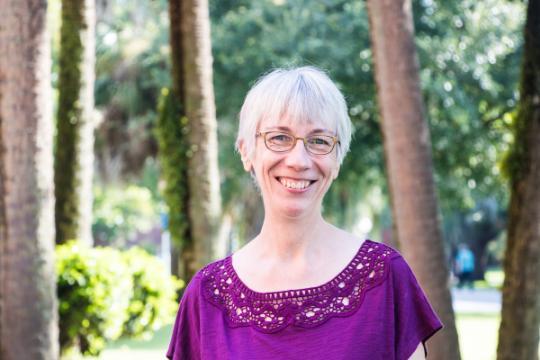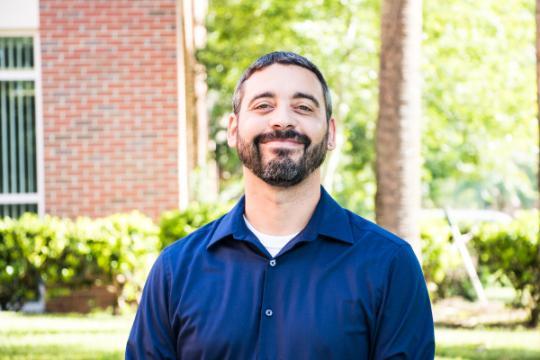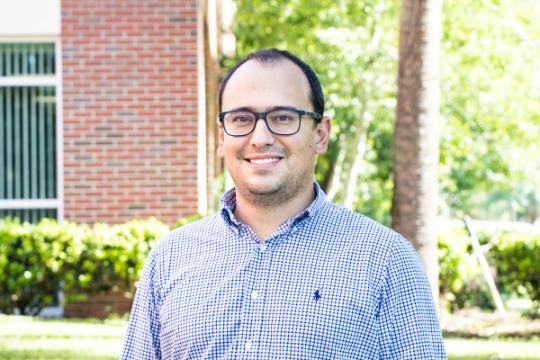Dean for Research Advisory Committee
The UF/IFAS Dean for Research Advisory Committee (DRAC) was established with the objective of meaningfully contributing to the UF/IFAS Dean for Research Office operations that support and promote UF/IFAS faculty. This group meets quarterly to discuss issues that aid in decision-making and to provide feedback on matters affecting the UF/IFAS research environment.
The DRAC held its inaugural meeting on January 2017 with members selected by the UF/IFAS Dean for Research Office, the UF/IFAS Faculty Assembly, and UF/IFAS directors and chairs. Members rotate annually based on staggered term limits.
Examples of discussion topics for meetings may include areas such as: (1) ideas for encouraging faculty engagement, (2) discussion on value of IFAS internal grants programs, (3) ideas for augmenting the next grant-writing workshop, (4) discussion on tools available from www.research.ifas.ufl.edu, and (5) discussion of IDC, SHARE, and others.
2021 DRAC Members | |
|---|---|
 |
Bryony Bonning
Dr. Bonning is the Director of the Center for Arthropod Management Technologies (CAMTech), a National Science Foundation Industry/University Cooperative Research Center. She oversees cutting edge research on insect physiology and pathology with the goal of developing novel, environmentally benign alternatives to chemical insecticides for insect pest management. Click here to view Dr. Bonning's website and learn more about her research. |
 |
Zhifeng GaoProfessor, Food and Resource Economics Dr. Gao's research program aims to enhance understanding of consumer attitudes and preferences for selected attributes of food products. This research provides critical information for the food industry and is used to develop policies that encourage the availability of high-quality food products to consumers. Click here to view Dr. Gao's website and learn more about his research. |
Anne MathewsAssociate Professor, Food Science and Human Nutrition Dr. Mathews’ research interests are in elucidating the relationship between adiposity, lifestyle behaviors, genetics and chronic disease. Modifying disease risk through "improvements" in nutrition and physical activity habits is a powerful treatment. Her research focuses on evaluating the effects of various approaches to enhance the adoption of healthy lifestyle behaviors and to accurately and objectively assess the physiological outcomes of these behaviors contributes to this body of work. Click here to view Dr. Mathews' website and learn more about her research. |
|
 |
Brian PearsonAssistant Professor, Environmental Horticulture, Mid-Florida REC Dr. Pearson's research program focuses on the impact of landscape practices on water quality and quantity. He utilizes an interdisciplinary holistic approach to develop landscape management practices that maximize plant establishment, growth, and quality within anthropogenically impacted urban areas while simultaneously minimizing negative environmental impacts. His program also aims to develop management practices necessary for successful cultivation of ornamental nursery and protected agricultural crops. Click here to view Dr. Pearson's website and learn more about his research. |
 |
Natalia PeresProfessor, Gulf Coast REC, Plant Pathology Dr. Natalia Peres conducts basic and applied research on important diseases affecting strawberry production in Florida. The goal of her program is to develop a better understanding of the etiology of the diseases and the environmental factors affecting their development and to provide more effective disease control recommendations. Click here to view Dr. Peres' website and learn more about his research. |
 |
Marcio ResendeAssistant Professor, Horticultural Sciences Dr. Resende's research program focuses on breeding, genomics, quantitative genetics, and bioinformatics of maize. His lab has an active breeding program working on the development of sweet corn inbred and hybrid lines that are aimed at addressing the concerns of the Florida growers. Click here to view Dr. Resende's website and learn more about his research. |
 |
Chelsea SmarttAssociate Professor, Florida Medical Entomology Lab, Entomology and Nematology Our ability to mitigate epidemics is hindered by a lack of knowledge about the mosquito vectors and our inability to predict dangerous vector populations and specific periods when they may become dangerous. A large part of the research being conducted in Dr. Smartt's lab is needed to fill in the missing information that has to do with vector-virus interactions. Click here to view Dr. Smartt's website and learn more about her research. |
 |
Samantha WiselyProfessor, Wildlife Ecology and Conservation Trained as a conservation geneticist, Dr. Wisely's research interests have evolved to incorporate how landscape context influences movement patterns and disease dynamics of terrestrial vertebrates. Broadly, she is interested in how human impacts on the landscape alter ecosystem function. Using a combination of field and laboratory techniques, my lab seeks to understand how host populations maintain reservoirs of pathogens in a changing landscape. Click here to view Dr. Wisely's website and learn more about her research. |
